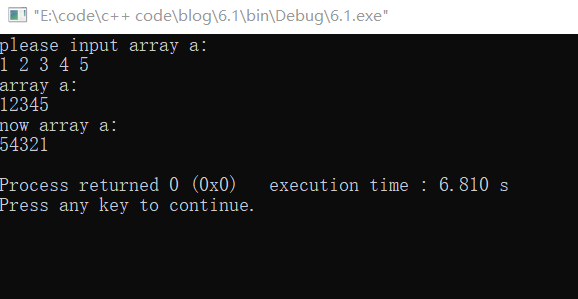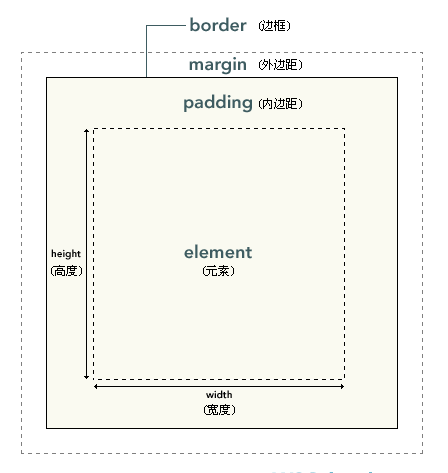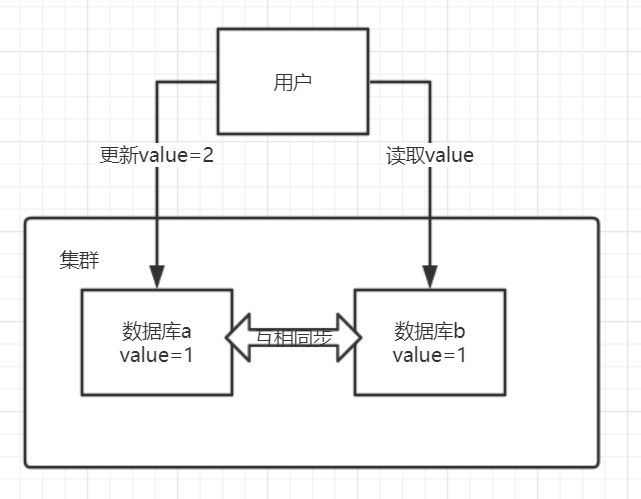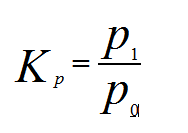非确定性计算引擎转化为C#版本并重构
这是之前我写的原始的 VB.NET 版本:
http://www.cnblogs.com/RChen/archive/2010/05/17/1737587.html
转化为 C# 版本后,还进行了一些重构。包括修改成了强类型,以及使用了 Parallel.ForEach,但是发现没有收到预期的效果。性能提升比较少。
研究后发现,其实问题的关键在于要通过某种方式对遍历的可能性进行剪枝,这样才能减少遍历次数,从而提升性能。而且,由于结果是通过 yield return 和 IEnumerable 实现的,并没有实现 IList 或者 Array. 所以它本质上并不支持按索引范围拆分的 Parallel.ForEach 工作方式,而实际估计是使用的几个 chunk 轮番读取的低效方式,这样在各个 chunk 之间就有线程同步的开销,如前文所说。这个性能优化只好留待后面有空再继续研究。
下面是目前的状况的实现代码:
using System;using System.Collections.Generic;using System.Linq;using System.Text;using System.Threading.Tasks;using System.Collections;namespace NonDeterministicEngineCS{class Program{static void Main(string[] args){Benchmarking(new Action(Test1), "Test1() 执行完成,花费:{0}毫秒。");Console.WriteLine("====================================================");Benchmarking(new Action(Test2), "Test2() 执行完成,花费:{0}毫秒。");Console.WriteLine("====================================================");Benchmarking(new Action(Test3), "Test3() 执行完成,花费:{0}毫秒。");Console.ReadLine();}// 一个简单的测试例子public static void Test1(){NonDeterministicEngine engine = new NonDeterministicEngine();engine.AddParam("a", new int[] { 1, 2, 3, 4, 5, 6 });engine.AddParam("b", new int[] { 1, 2, 3, 4, 5, 6, 7, 8, 9, 10 });engine.AddRequire((int a) => a > 2 && a < 9);engine.AddRequire((int b) => b > 5 && b <= 10);engine.AddRequire((int a, int b) => a == b - 1);engine.EachResult(result => Console.WriteLine("a = {0}, b = {1}", result["a"], result["b"]));}// 爱因斯坦谜题public static void Test2(){NonDeterministicEngine engine = new NonDeterministicEngine();engine.AddParam("baker", new int[] { 1, 2, 3, 4, 5 });engine.AddParam("cooper", new int[] { 1, 2, 3, 4, 5 });engine.AddParam("fletcher", new int[] { 1, 2, 3, 4, 5 });engine.AddParam("miller", new int[] { 1, 2, 3, 4, 5 });engine.AddParam("smith", new int[] { 1, 2, 3, 4, 5 });engine.AddRequire((int baker) => baker != 5);engine.AddRequire((int cooper) => cooper != 1);engine.AddRequire((int fletcher) => fletcher != 1 && fletcher != 5);engine.AddRequire((int miller, int cooper) => miller > cooper);engine.AddRequire((int smith, int fletcher) =>smith != fletcher + 1&& smith != fletcher - 1);engine.AddRequire((int fletcher, int cooper) => fletcher != cooper + 1&& fletcher != cooper - 1);engine.AddRequire((int baker, int cooper, int fletcher, int miller, int smith) =>baker != cooper && baker != fletcher && baker != miller&& baker != smith && cooper != fletcher && cooper != miller&& cooper != smith && fletcher != miller && fletcher != smith && miller != smith);engine.EachResult(result =>Console.WriteLine("baker: {0}, cooper: {1}, fletcher: {2}, miller: {3}, smith: {4}",result["baker"],result["cooper"],result["fletcher"],result["miller"],result["smith"]));}// 八皇后问题的解法public static void Test3(){var engine = new NonDeterministicEngine();engine.AddParam("a", new int[] { 1, 2, 3, 4, 5, 6, 7, 8 });engine.AddParam("b", new int[] { 1, 2, 3, 4, 5, 6, 7, 8 });engine.AddParam("c", new int[] { 1, 2, 3, 4, 5, 6, 7, 8 });engine.AddParam("d", new int[] { 1, 2, 3, 4, 5, 6, 7, 8 });engine.AddParam("e", new int[] { 1, 2, 3, 4, 5, 6, 7, 8 });engine.AddParam("f", new int[] { 1, 2, 3, 4, 5, 6, 7, 8 });engine.AddParam("g", new int[] { 1, 2, 3, 4, 5, 6, 7, 8 });engine.AddParam("h", new int[] { 1, 2, 3, 4, 5, 6, 7, 8 });engine.AddRequire((int a, int b, int c, int d, int e, int f, int g, int h) =>a != b && a != c && a != d&& a != e && a != f && a != g && a != h&& b != c && b != d && b != e && b != f && b != g && b != h&& c != d && c != e && c != f && c != g && c != h&& d != e && d != f && d != g && d != h&& e != f && e != g && e != h&& f != g && f != h&& g != h&& NotInTheSameDiagonalLine(new int[] { a, b, c, d, e, f, g, h }));engine.EachResult(result =>Console.WriteLine("(1,{0}), (2,{1}), (3,{2}), (4,{3}), (5,{4}), (6,{5}), (7,{6}), (8,{7})",result["a"],result["b"],result["c"],result["d"],result["e"],result["f"],result["g"],result["h"]));}static bool NotInTheSameDiagonalLine(int[] cols){for (int i = 0; i < cols.Length - 1; i++){for (int j = i + 1; j < cols.Length; j++){if (j - i == Math.Abs(cols[j] - cols[i]))return false;}}return true;}public static void Benchmarking(Action f, string messageFormat){DateTime time1 = DateTime.Now;f();DateTime time2 = DateTime.Now;Console.WriteLine(messageFormat, (time2 - time1).TotalMilliseconds);}}}using System;using System.Collections.Generic;using System.Linq;using System.Text;using System.Collections;namespace NonDeterministicEngineCS{public class Param{public string Name{get;set;}public IEnumerator Values{get;set;}}}using System;using System.Collections.Generic;using System.Linq;using System.Text;namespace NonDeterministicEngineCS{public abstract class Condition{public IList<string> ParamNames{get;protected set;}public abstract bool Call(params object[] args);public Condition(Delegate predicate){ParamNames = predicate.Method.GetParameters().Select(p => p.Name).ToArray();}}public class Condition<T> : Condition{public Condition(Func<T, bool> predicate): base(predicate){m_func = predicate;}Func<T, bool> m_func;public override bool Call(params object[] args){return m_func((T)args[0]);}}public class Condition<T1, T2> : Condition{public Condition(Func<T1, T2, bool> predicate): base(predicate){m_func = predicate;}Func<T1, T2, bool> m_func;public override bool Call(params object[] args){return m_func((T1)args[0], (T2)args[1]);}}public class Condition<T1, T2, T3> : Condition{public Condition(Func<T1, T2, T3, bool> predicate): base(predicate){m_func = predicate;}Func<T1, T2, T3, bool> m_func;public override bool Call(params object[] args){return m_func((T1)args[0], (T2)args[1], (T3)args[2]);}}public class Condition<T1, T2, T3, T4> : Condition{public Condition(Func<T1, T2, T3, T4, bool> predicate): base(predicate){m_func = predicate;}Func<T1, T2, T3, T4, bool> m_func;public override bool Call(params object[] args){return m_func((T1)args[0], (T2)args[1], (T3)args[2], (T4) args[3]);}}public class Condition<T1, T2, T3, T4, T5> : Condition{public Condition(Func<T1, T2, T3, T4, T5, bool> predicate): base(predicate){m_func = predicate;}Func<T1, T2, T3, T4, T5, bool> m_func;public override bool Call(params object[] args){return m_func((T1)args[0], (T2)args[1], (T3)args[2], (T4)args[3], (T5)args[4]);}}public class Condition<T1, T2, T3, T4, T5, T6> : Condition{public Condition(Func<T1, T2, T3, T4, T5, T6, bool> predicate): base(predicate){m_func = predicate;}Func<T1, T2, T3, T4, T5, T6, bool> m_func;public override bool Call(params object[] args){return m_func((T1)args[0], (T2)args[1], (T3)args[2], (T4)args[3], (T5)args[4], (T6)args[5]);}}public class Condition<T1, T2, T3, T4, T5, T6, T7> : Condition{public Condition(Func<T1, T2, T3, T4, T5, T6, T7, bool> predicate): base(predicate){m_func = predicate;}Func<T1, T2, T3, T4, T5, T6, T7, bool> m_func;public override bool Call(params object[] args){return m_func((T1)args[0], (T2)args[1], (T3)args[2], (T4)args[3], (T5)args[4], (T6)args[5], (T7)args[6]);}}public class Condition<T1, T2, T3, T4, T5, T6, T7, T8> : Condition{public Condition(Func<T1, T2, T3, T4, T5, T6, T7, T8, bool> predicate): base(predicate){m_func = predicate;}Func<T1, T2, T3, T4, T5, T6, T7, T8, bool> m_func;public override bool Call(params object[] args){return m_func((T1)args[0], (T2)args[1], (T3)args[2], (T4)args[3], (T5)args[4], (T6)args[5], (T7)args[6], (T8)args[7]);}}}using System;using System.Collections.Generic;using System.Linq;using System.Text;using System.Collections;using System.Threading.Tasks;using System.Linq.Expressions;namespace NonDeterministicEngineCS{public class NonDeterministicEngine{private List<Param> m_paramDict = new List<Param>();private List<Condition> m_predicateDict = new List<Condition>();public void AddParam(string name, IEnumerable values){m_paramDict.Add(new Param { Name = name, Values = values.GetEnumerator() });}#region Add Requirepublic void AddRequire<T>(Func<T, bool> predicate){m_predicateDict.Add(new Condition<T>(predicate));}public void AddRequire<T1, T2>(Func<T1, T2, bool> predicate){m_predicateDict.Add(new Condition<T1, T2>(predicate));}public void AddRequire<T1, T2, T3>(Func<T1, T2, T3, bool> predicate){m_predicateDict.Add(new Condition<T1, T2, T3>(predicate));}public void AddRequire<T1, T2, T3, T4>(Func<T1, T2, T3, T4, bool> predicate){m_predicateDict.Add(new Condition<T1, T2, T3, T4>(predicate));}public void AddRequire<T1, T2, T3, T4, T5>(Func<T1, T2, T3, T4, T5, bool> predicate){m_predicateDict.Add(new Condition<T1, T2, T3, T4, T5>(predicate));}public void AddRequire<T1, T2, T3, T4, T5, T6>(Func<T1, T2, T3, T4, T5, T6, bool> predicate){m_predicateDict.Add(new Condition<T1, T2, T3, T4, T5, T6>(predicate));}public void AddRequire<T1, T2, T3, T4, T5, T6, T7>(Func<T1, T2, T3, T4, T5, T6, T7, bool> predicate){m_predicateDict.Add(new Condition<T1, T2, T3, T4, T5, T6, T7>(predicate));}public void AddRequire<T1, T2, T3, T4, T5, T6, T7, T8>(Func<T1, T2, T3, T4, T5, T6, T7, T8, bool> predicate){m_predicateDict.Add(new Condition<T1, T2, T3, T4, T5, T6, T7, T8>(predicate));}#endregionpublic IEnumerable<Dictionary<string, object>> GetResults(){var em = new CombinationEnumerable(this);foreach (var item in em){if (Satisfy(item))yield return item;}}public void EachResult(Action<Dictionary<string, object>> action){var em = new CombinationEnumerable(this);Parallel.ForEach(em,result =>{if (Satisfy(result)){action(result);}});}bool Satisfy(Dictionary<string, object> result){foreach (Condition item in m_predicateDict){var args = item.ParamNames.Select(name => result[name]).ToArray();if (item.Call(args))continue;return false;}return true;}private class CombinationEnumerable : IEnumerable<Dictionary<string, object>>{NonDeterministicEngine m_engine;public CombinationEnumerable(NonDeterministicEngine engine){m_engine = engine;}public IEnumerator<Dictionary<string, object>> GetEnumerator(){return new CombinationEnumerator(m_engine);}IEnumerator IEnumerable.GetEnumerator(){return new CombinationEnumerator(m_engine);}}/// <summary>/// 组合多个 iterator 为一个复合的 iterator./// MoveNext 实现为:移动到下一个所有变量值可能的组合。/// </summary>private class CombinationEnumerator : IEnumerator<Dictionary<string, object>>{private bool m_firstTime = true;private NonDeterministicEngine m_target;public CombinationEnumerator(NonDeterministicEngine engine){m_target = engine;}public void Dispose(){}public Dictionary<string, object> GetCurrent(){if (IterationOver)return null;return m_target.m_paramDict.ToDictionary(param => param.Name, param => param.Values.Current);}public bool MoveNext(){if (IterationOver)return false;if (m_firstTime){// 首次执行时,需要将所有变量的 enumerator 都前进到起始位置foreach (Param item in m_target.m_paramDict){item.Values.MoveNext();}m_firstTime = false;return true;}// 首先尝试最后一个变量的 iterator,看能否 MoveNext() (是否还有没有尝试过的值)。int iterIndex = m_target.m_paramDict.Count - 1;bool canMoveNext = m_target.m_paramDict[iterIndex].Values.MoveNext();if (canMoveNext)return true;// 否则依次回溯到前一个变量,看该变量的 iterator 能否 MoveNext()while (!canMoveNext){iterIndex--;// 表明已尝试了所有变量的所有可能值,退无可退,则终止枚举过程。if (iterIndex == -1){IterationOver = true;return false;}canMoveNext = m_target.m_paramDict[iterIndex].Values.MoveNext();// 如果往前退到某个可以前进的位置if (canMoveNext){// 则需要将这个位置之后的所有其他变量的 iterator 复位,并前进到第一种可能性。for (int i = iterIndex + 1; i < m_target.m_paramDict.Count; i++){var iter = m_target.m_paramDict[i].Values;iter.Reset();iter.MoveNext();}return true;}}return false;}public void Reset(){IterationOver = false;m_firstTime = true;foreach (var param in m_target.m_paramDict){param.Values.Reset();}}public Dictionary<string, object> Current{get{return GetCurrent();}}/// <summary>/// 标记枚举是否已经结束/// </summary>public bool IterationOver{get;set;}object IEnumerator.Current{get{return GetCurrent();}}}}}






























![[hbase] hbase的架构及其各角色功能 [hbase] hbase的架构及其各角色功能](https://image.dandelioncloud.cn/images/20230601/3b9ef42ad8a9409390d4df738d8087d6.png)




还没有评论,来说两句吧...